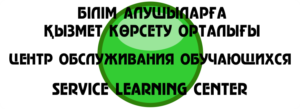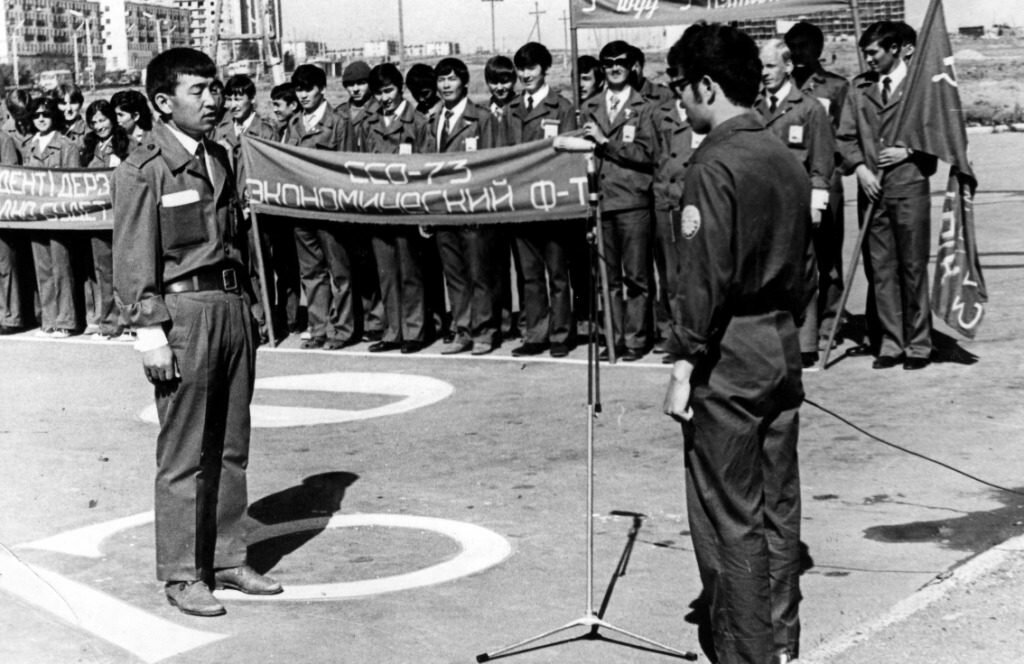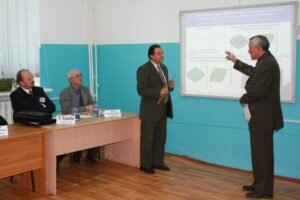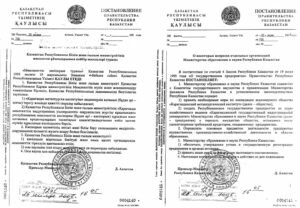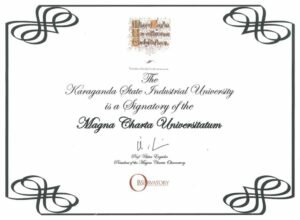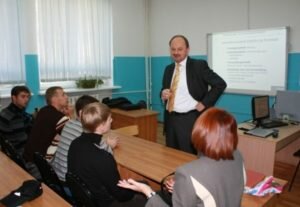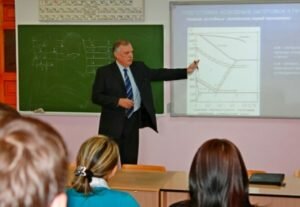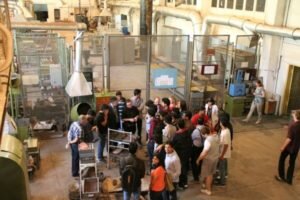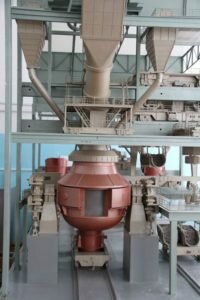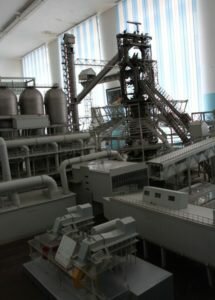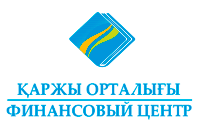History
In the library of the factory – vocational and technical institute
The structure of the university consists of four faculties – metallurgical, mechanical engineering, engineering and construction, evening – and the preparatory department. Of the 26 departments, twelve were graduating. Training was conducted in 9 specialties on day and evening courses. More than 250 qualified teachers were engaged in scientific and pedagogical work, more than half of them with advanced degrees and titles. In order to improve the qualifications of the teaching staff practiced study in the IPK, scientific training in the workplace, training in graduate and doctoral studies. So, during the 1980-1986 graduated from the graduate school MIS&A, CENTRAL SCIENTIFIC RESEARCH INSTITUTE OF IRON AND STEEL INDUSTRY NAMED AFTER BARDIN with the successful defense of the thesis of more than 40 researchers of the institute-vocational and technical institute.
For students and teachers were created all the conditions for cultural leisure. The university had a faculty of arts, amateur artistic circles, a student theater of variety miniatures (STEM), the Noosphere club, a Young Lecturer’s School, sports sections on 12 kinds of sports, debates and evenings organized. The vocational education movement was developed.
In the period of the emergence of an independent Kazakhstan, in the conditions of the beginning of large-scale political and socio-economic reforms, the question of the future existence of the vocational and technical institute plant at the KMP was actualized. In 1993, the Karaganda Metallurgical Institute was established on its basis (Resolution of the Cabinet of Ministers of the Republic of Kazakhstan dated March 19, 1993, No. 221 and order of the Minister of Education of the Republic of Kazakhstan dated April 29, 1993, No. 193).
Karaganda Metallurgical Institute retained the status of the only higher educational institution in the Central Asian region, which graduates specialists in the entire spectrum of the metallurgical industry. The structure of the university consisted of three full-time faculties, correspondence faculty (created on the basis of the evening one in 1997), the Kazakh department, where training was conducted in metallurgical, engineering, construction, chemical and economic areas. The military department functioned, which prepared the communications officers of the reserve.
On the basis of the university, a project of educational and scientific complex of continuous education “KarMetI” was implemented. For the implementation of pre-university training at the institute were organized lyceum “Koktem” and the college. Postgraduate training was carried out under postgraduate and graduate programs.
By the 10th anniversary of Independence of the Republic of Kazakhstan, on behalf of the Head of State Nursultan Abishevich Nazarbayev, the construction of a new teaching and laboratory building of the Institute was completed. During the visit on December 12, 2001, the President of the Republic of Kazakhstan personally took part in the opening of a building equipped with modern equipment in the amount of $ 1.5 million. Acquired expensive equipment made it possible to organize an educational process at the level of world standards.
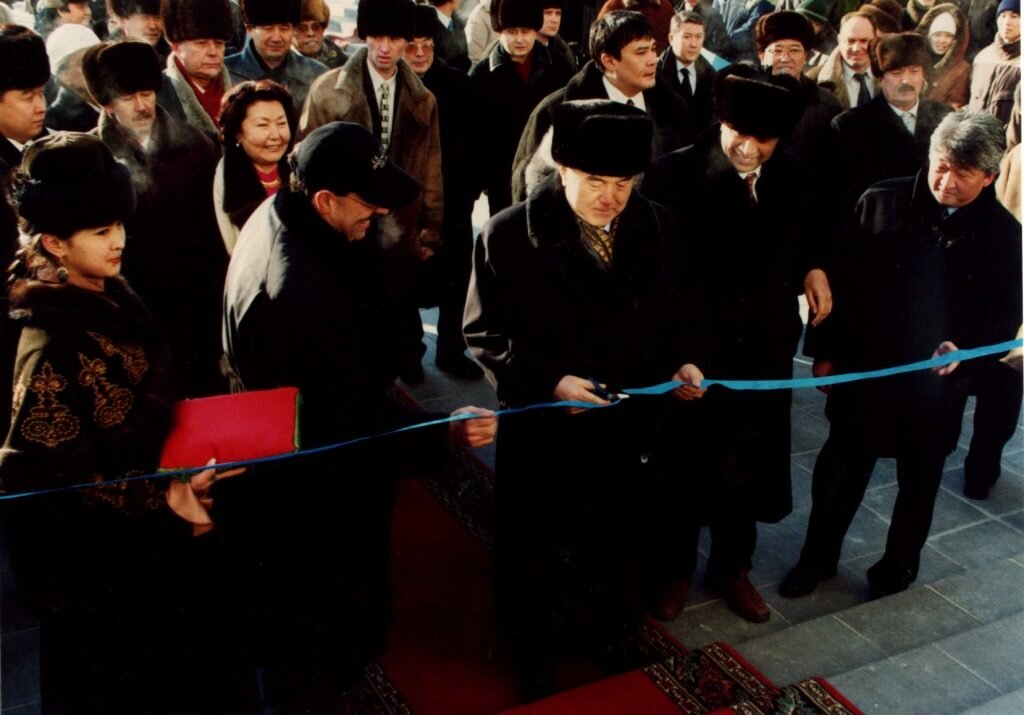
N.Nazarbayev at the opening ceremony of the new educational and laboratory building KarMetI, December 12, 2001.
In 2004, the Karaganda Metallurgical Institute was among the first in the Republic of Kazakhstan to switch to a credit technology for teaching students and training engineering and technical personnel in accordance with a three-tier system: bachelor – master – doctor Phd.
The university has introduced a quality management system for education, created a regional center for informatization of education, an industrial-innovative research center, and a publishing department. The institute had its own printing house, educational and research laboratories, computer classes with access to the global network of INTERNET, a library, reading rooms, a sports and fitness complex, and well-equipped dormitories.
At the initiative of the leadership of the Karaganda Metallurgical Institute, cooperation was established with such industrial giants as Ispat-Karmet, Kazakhmys, and Kazchrome. Relations developed in the direction of providing databases of practices, research, retraining and employment of graduates.
Since 2001, on the basis of the institute, international conferences “Scientific and technical progress in metallurgy” have been regularly held with the invitation of prominent scientists and leading specialists from the countries of the near and far abroad. The conferences became an interactive platform for discussing the problems of industrial-innovative development in the modern world and contributed to establishing creative ties with such research centers as the Freiberg Mining Academy (Germany), Moscow Institute of Steel and Alloys (RF), South Ural State Technical University (Chelyabinsk , RF), Dnipropetrovsk Metallurgical Institute (Ukraine), etc.
- The section “scientific-and-technological advance in field of metallurgy” in 2007
- Foreign guests took part in scientific-practical conference dedicated to 50th anniversary of Kazakhstan’s Magnitka 2010, Ksiu
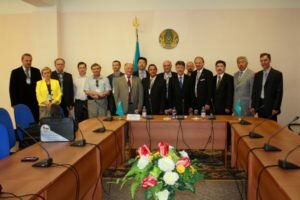
Foreign guests In international scientific-practical conference dedicated to the 50th anniversary of Kazakhstan’s Magnitka , Ksiu 2010
In 2006, the Karaganda State Industrial University was established on the basis of the Karaganda Metallurgical Institute. (Decree of the Government of the Republic of Kazakhstan dated July 25, 2006, No. 705).
This allowed to expand the range of specialties in which the university carries out training of engineering and technical personnel. Today there are 18 undergraduate majors, 8 magistracy specialties and 2 doctoral specialties. About 50% of the faculty members have academic degrees of doctor of science, candidate of science, doctor of Phd. Every year, experienced teachers of the university take part in the republican competition “The best teacher of the university.” The first winners of such a prestigious contest in 2006 were Gelmanova Zoya Salekhovna and Talmazan Vitaly Antonovich.
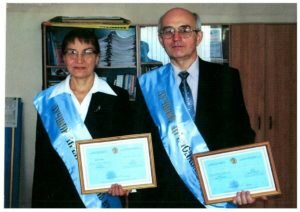
The first winners of the republican competition “The best teacher of the university” Z.S. Gelmanova and Talmazan V.A., 2006
In 2008, by order of the Ministry of Education and Science of the Republic of Kazakhstan, on the basis of KSIU, the Laboratory of Engineering Profile “Electron Microscopy and Nanotechnology” was created. The laboratory is equipped with unique modern equipment made in the USA, Japan, Germany, Russia, as well as licensed programs: Termocalk, Termoscan, COMPAS, Inventor, Deform. The direction of work of the LEP KSIU is the development of scientific bases and technologies for the creation of new promising materials for the metallurgical and engineering industries, the production of complex ferroalloys and the industrial use of waste.
The management of the university pays great attention to the process of integration into the world educational space. In 2009, the university signed the Magna Carta of Universities.
After its signing, the university is actively involved in the implementation of the program of academic mobility. According to the agreements concluded, students of KSIU can study at such foreign universities as the University of Chemical Technology and Metallurgy in Sofia (Bulgaria), the Technical University in Ostrava (Czech Republic), the Economic University in Katowice (Poland), the Lublin Technical University (Poland). Leading scientists from Russia, China, Germany, Poland, Bulgaria are invited to give lectures to students and undergraduates of the university. Joint educational programs are being developed for postgraduate master training.
- Фрайберг тау-кен академиясының профессоры R.Kawalla ҚМИУ магистраттарына сабақ өткізуде. Теміртау қ. 2011ж.
- МБжҚИ профессоры ҚМИУ студенттері және магистранттарына дәріс оқуда. Теміртау қ. 2011ж.
Since 2014, under the program of academic mobility, KSIU has been accepting students from India, for whom the lecture and practical classes are conducted by leading scientists and specialists of the metallurgical departments of the university.
Since 2015, the university has been training specialists in the bachelor program under the state program “Serpin”. On the basis of KSIU annually held the Republican subject student Olympiad in the specialties “Metallurgy” and “Technology of pressure material processing”. For several years, university students occupy the first places in the team and individual competition.
Today there are 3 faculties in the structure of the university: “Metallurgy and mechanical engineering”, “Energy, transport and management systems”, “Economics and construction”. The university created the most favorable conditions for the full development of student youth. The university has 59 specialized laboratories. The University has a metallurgical center with 12 professional laboratories. KSIU is the only university in Kazakhstan with a pilot industrial site with operating models of metallurgical furnaces.
On the basis of the university, the Karaganda regional center of the Cisco Network Academy was opened. Under the guidance of experienced teachers, students receive education for Industry 4.0, which focuses on the needs of the new economy, industrial clusters, and cyber-physical systems. An integral and promising part of Industry 4.0 is mechatronics and 3D.
Operating models of the blast furnace and converter
The scientific and laboratory base of the Karaganda State Industrial University allows scientists, undergraduates and university students to conduct research of fundamental and applied nature and draw up research results in graduation projects, master’s theses, dissertations for the Phd degree, monographs and scientific articles in national and foreign publications. The research results are tested at various levels of conferences.
The decisive factor in the development and growth of the competitiveness of the Kazakh economy is the integration of education, science and industry. Within the framework of the dual education project, branches of graduating departments were established at the leading enterprises of the city. At the initiative of the university management, memorandums of cooperation were signed with such large industrial companies as ArcelorMittal Temirtau JSC, JSC Kazakhmys Corporation, Sokolovsko-Sarbai Mining and Processing Plant, JSC NTC Kazchrome, Aktobe rail-laying factory, Central Asia Cement JSC etc. These enterprises form the basis of KSIU practices.
Today KSIU is one of the leading universities of Kazakhstan for the training of highly qualified personnel specializing in engineering and technology, construction and business, innovation and research in priority areas of industrial development of the Republic of Kazakhstan. More than half a century of history graduates of the university were about 24 thousand people. Of these, over 14,000 have received engineering education over the years of independence. University graduates become talented engineers, scientists, successful entrepreneurs, managers of large enterprises and organizations, government and political figures. The faculty and students of the university are especially proud that among the graduates of our university is the First President of the Republic of Kazakhstan, the Leader of the Nation Nursultan Nazarbayev.
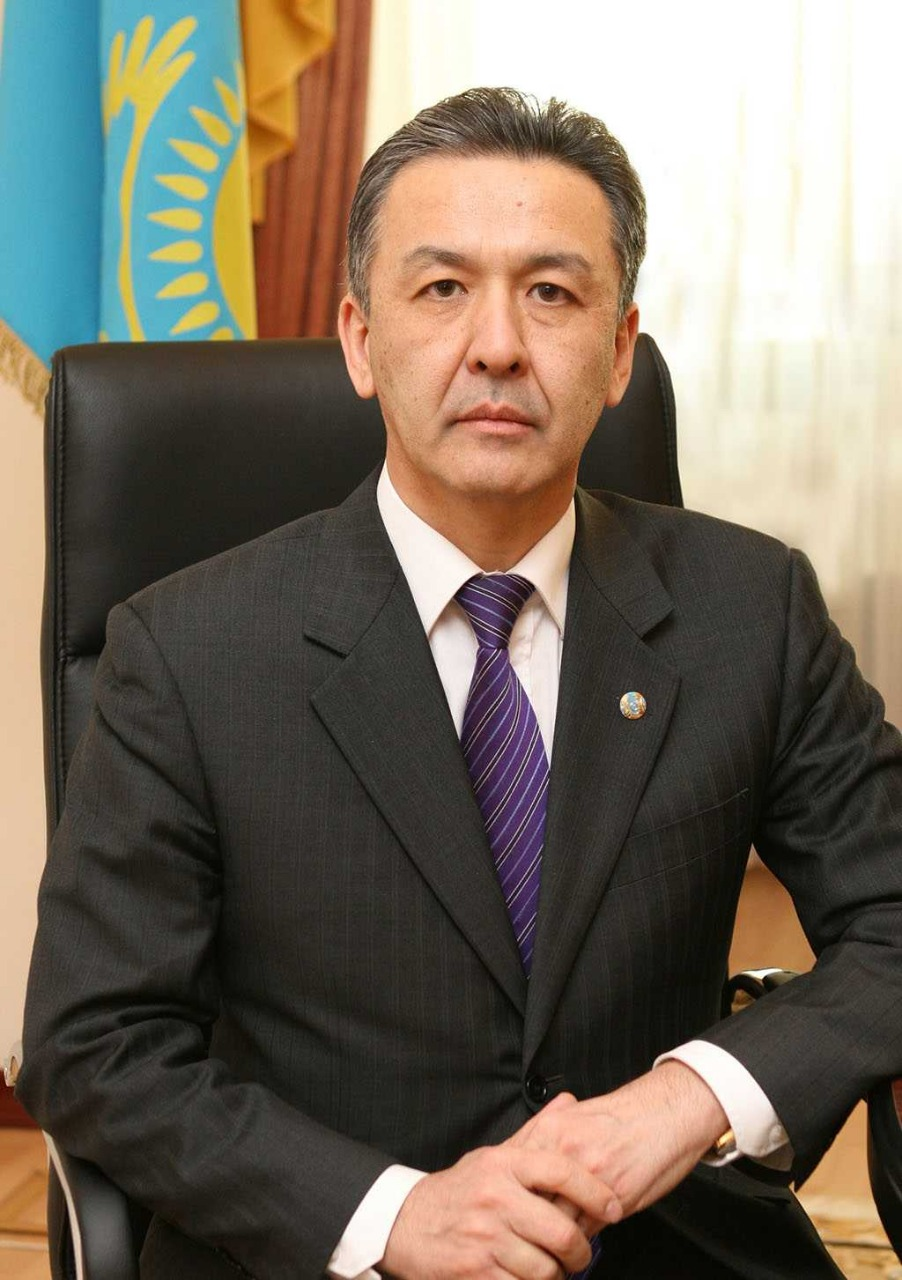 For the period of 50 years Karaganda State Industrial University, founded in 1963, has become one of the leading hig...
For the period of 50 years Karaganda State Industrial University, founded in 1963, has become one of the leading hig...




